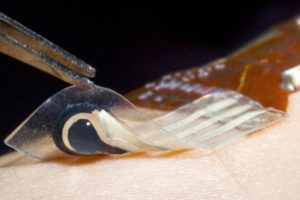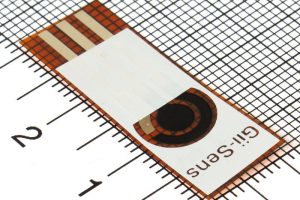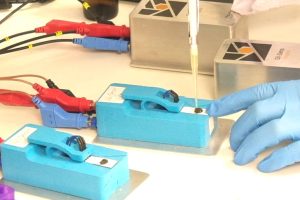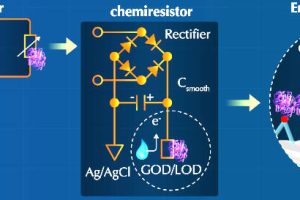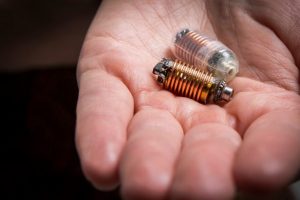
It uses a novel gas sensing technique, that has now been patented.
According to ‘A human pilot trial of ingestible electronic capsules capable of sensing different gases in the gut‘, a paper in Nature Electronics, accuracy is better than 1% for all three gasses sensed: hydrogen, carbon dioxide and oxygen. – while the paper, which can be read free, is largely medical, there is a technical description and diagrams.
The pill is 26mm long, 9.8mm in diameter) and picks up gasses through a permeable membrane at one end, where they fall on a metal oxide sensor – which cannot inherently differentiate between gasses.
However, the researchers have included an on-board heater which allows the sensor to operate at different temperatures, and it allows the thermal conductivity of the gas mixture to be measured at different temperatures. By looking at the sensor output thermal profile, and the conductivity thermal profile, both during heating and during cooling, an algorithm is able to deduce gas concentrations.
Power comes from a silver oxide battery – sensing every few minutes with low-power sleep in between means battery life can be days.
Data is to an external pocket-sized box at 433MHz, and this box can forward the data to a phone over Bluetooth.
“Trials show that the capsules are perfectly safe, with no retention,” said capsule co-inventor Dr Kyle Berean. “Our ingestible sensors offer a potential diagnostic tool for many disorders of the gut from food nutrient mal-absorption to colon cancer.”
Discoveries have already been made.
“We found that the stomach releases oxidising chemicals to break down and beat foreign compounds that are staying in the stomach for longer than usual,” said fellow capsule inventor Professor Kourosh Kalantar-zadeh. “This could represent a gastric protection system against foreign bodies. Such an immune mechanism has never been reported before.”
Another observation that the colon may contain oxygen. “Trials showed the presence of high concentrations of oxygen in the colon under an extremely high-fibre diet,” said Kalantar-zadeh. “This contradicts the old belief that the colon is always oxygen free.”
Company Atmo Biosciences has been founded with Planet Innovation to commercialise the capsule.
 Electronics Weekly Electronics Design & Components Tech News
Electronics Weekly Electronics Design & Components Tech News
